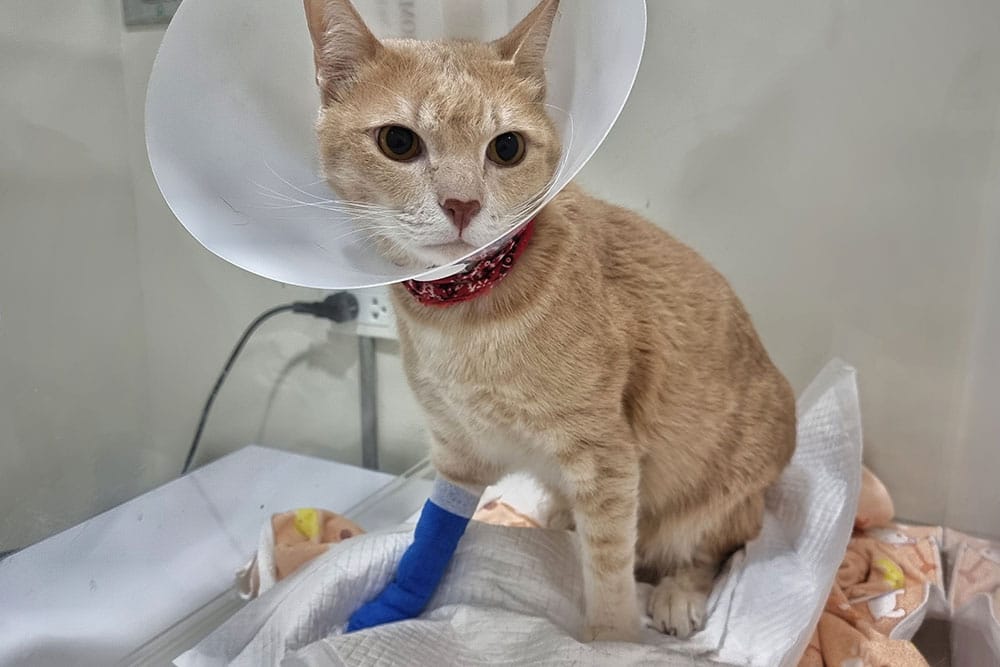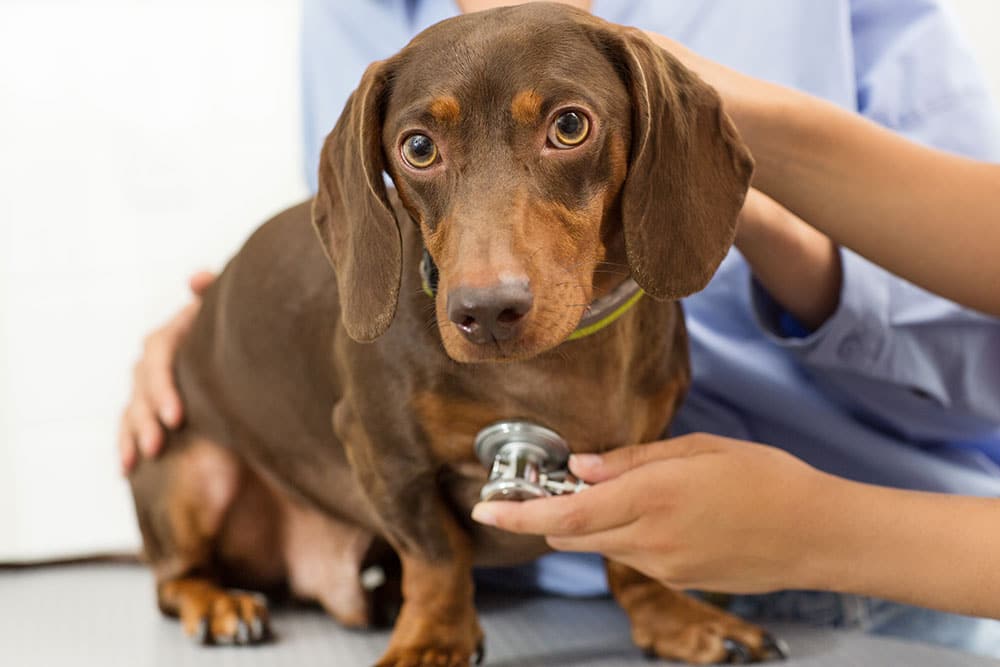Breed Traits and the Health Challenges They Bring
French Bulldogs are known for their adorable snorts, Dachshunds for their long backs, and retrievers for their energetic personalities. Yet the same traits that make these breeds beloved also come with health risks. From joint disease to skin infections, breed tendencies are important for owners to understand.
At Paws at Play Resort & Daycare in North Royalton, OH, pets benefit from veterinary oversight, professional grooming to keep skin and coats healthy, and luxury boarding where medical staff are always nearby. For more advanced support, our partnership with North Royalton Animal Hospital ensures comprehensive medical care whenever your pet needs it.
Understanding Breed-Specific Health Risks
When we fall in love with a particular breed, we’re often drawn to their distinctive features and personality. However, the same genetics that make breeds unique also predispose them to certain conditions. Understanding these risks helps you provide better preventive care and recognize early warning signs.
Selective breeding over centuries has concentrated desirable traits, but it has also increased the likelihood of some inherited conditions. Awareness does not mean your pet will definitely face these issues, but it allows you to take proactive steps to protect their health.
Hereditary Conditions Across Breeds
Eye Diseases
Many breeds carry genetic predispositions to hereditary eye disease. Progressive Retinal Atrophy affects breeds such as Cocker Spaniels and Poodles, while cataracts are common in Golden Retrievers and Boston Terriers. Persian cats may develop corneal sequestrum and other eye disorders.
Routine eye exams help detect changes early, and genetic testing can sometimes identify risks before symptoms appear.
Heart Conditions
Cavalier King Charles Spaniels have a high prevalence of mitral valve disease, while Doberman Pinschers and Boxers are prone to dilated cardiomyopathy. Maine Coon cats frequently develop hypertrophic cardiomyopathy.
Because these diseases often progress silently, regular cardiac monitoring and early screening are essential for at-risk breeds.
Popular Breeds and Their Common Health Issues
Brachycephalic Breeds
Flat-faced breeds such as French Bulldogs, Pugs, and Persian cats often struggle with Brachycephalic Obstructive Airway Syndrome (BOAS). This condition makes breathing difficult and worsens with heat, stress, or obesity.
In addition, regular grooming is especially important for these pets. Keeping facial folds clean reduces the risk of infection, which can further complicate breathing. Female brachycephalic dogs are also prone to birthing difficulties, making veterinary guidance essential for breeding decisions.
Dachshunds and Long-Backed Breeds
The elongated spine that makes Dachshunds, Corgis, and Basset Hounds distinctive also predisposes them to Intervertebral Disc Disease (IVDD). Disc herniation can cause severe pain or even paralysis.
Prevention includes weight control, avoiding high-impact jumping, and encouraging low-impact exercise such as swimming.
Toy Breeds
Small breeds like Chihuahuas and Yorkshire Terriers often suffer from overcrowded teeth, which promotes plaque buildup and periodontal disease.They are also prone to retaining their baby teeth, adding to the crowding issues. Regular professional cleanings, daily brushing, and dental-friendly chews help protect their oral health.
Larger Breeds and Their Unique Challenges
Retrievers, Shepherds, and Joint Diseases
Golden Retrievers, Labradors, and German Shepherds often face orthopedic issues such as hip dysplasia and arthritis. Signs include stiffness, reluctance to climb stairs, or lameness. Shepherds are known for their predisposition for degenerative myelopathy, a progressive condition that can lead to hind end paralysis. Early screening allows for lifestyle adjustments and, in some cases, surgical treatment to maintain mobility.
Extra Large Dogs
Giant breeds like Great Danes and Standard Poodles are at risk for gastric dilatation-volvulus (GDV), a life-threatening emergency where the stomach twists and fills with gas. Quick recognition of restlessness, abdominal swelling, or unproductive retching can save lives.
These breeds may also face orthopedic and neurologic disorders such as Wobbler Syndrome and angular limb deformities.
Common Breed Grooming Issues
Professional grooming at Paws at Play is more than a spa day- it is a vital part of keeping pets healthy and comfortable. Our experienced team understands that different breeds come with unique coat and skin challenges, and we tailor care to meet those specific needs.
Northern breeds such as Huskies and Malamutes have thick double coats that shed heavily. Our groomers use the right tools and techniques to remove loose undercoat, preventing matting and skin irritation.
Retrievers and terriers are prone to allergies and skin sensitivities. Regular grooming helps reduce allergens, keeps the skin clean, and allows our staff to spot hot spots or infections early.
Brachycephalic breeds like Bulldogs and Pugs need extra attention to their facial folds. Our team carefully cleans and dries these areas to prevent the bacterial and yeast infections that often occur if folds are neglected.
Poodles and other curly-coated breeds require routine clipping and brushing to prevent painful matting and overgrowth. At Paws at Play, we keep coats manageable, healthy, and styled appropriately for both comfort and appearance.
With professional grooming tailored to your pet’s breed, Paws at Play helps maintain not just a polished look but lasting health and comfort.
The Role of Regular Veterinary Care and Monitoring
Consistent veterinary visits are the foundation of keeping breed-specific health risks under control. Wellness exams give veterinarians the chance to track subtle changes in weight, breathing, mobility, or heart function before they progress into advanced disease. Early detection often means more treatment options and better long-term outcomes.
Between professional checkups, owners play an important role. Simple home exams allow you to notice shifts in appetite, behavior, or gait that may indicate an underlying problem. Reporting these changes promptly helps your veterinarian act quickly.
At North Royalton Animal Hospital, we provide wellness care tailored to your pet’s breed and age, supported by advanced diagnostics for early detection. And if sudden problems arise, our emergency services ensure your pet has access to immediate, expert care when it matters most.

Proactive Planning: Pet Insurance and Genetic Testing
For families with breeds known to face genetic risks, planning ahead can make a huge difference.
Pet insurance helps cover the cost of unexpected emergencies, surgeries, and chronic disease management. Enrolling pets when they are young ensures coverage before conditions develop, giving you peace of mind that finances will never delay lifesaving care.
Genetic testing is another proactive step. Companies like Wisdom Panel, Embark, and Basepaws offer tests that identify breed composition and screen for inherited health risks. The benefits of DNA testing include early detection of predispositions, more targeted wellness care, and informed breeding choices.
While no test can predict every condition, combining results with veterinary exams allows for a personalized health plan tailored to your pet’s future.
Taking Action for Your Pet’s Health
Understanding your pet’s breed-specific risks empowers you to act early and prevent serious complications. Whether you are concerned about breathing in a French Bulldog, mobility in a Retriever, or dental issues in a Chihuahua, timely veterinary evaluation provides answers and peace of mind.
At Paws at Play Resort & Daycare and North Royalton Animal Hospital, we work together to provide comprehensive support, from preventive care and grooming to advanced medical services and emergency care.
Contact us today to learn more about our services or to schedule a wellness exam. Our experienced team is here to help your pet stay healthy, comfortable, and thriving at every stage of life.








Leave A Comment